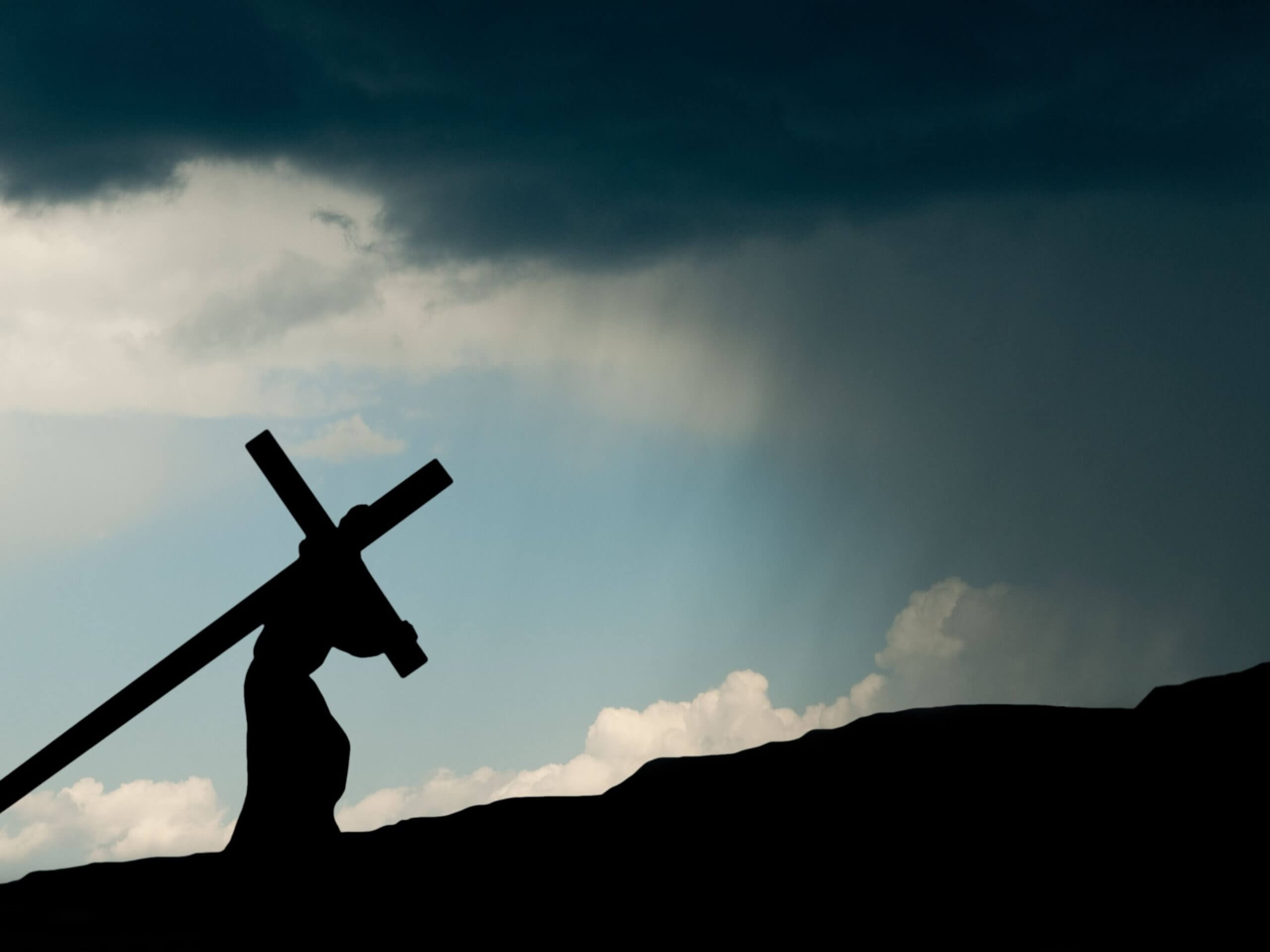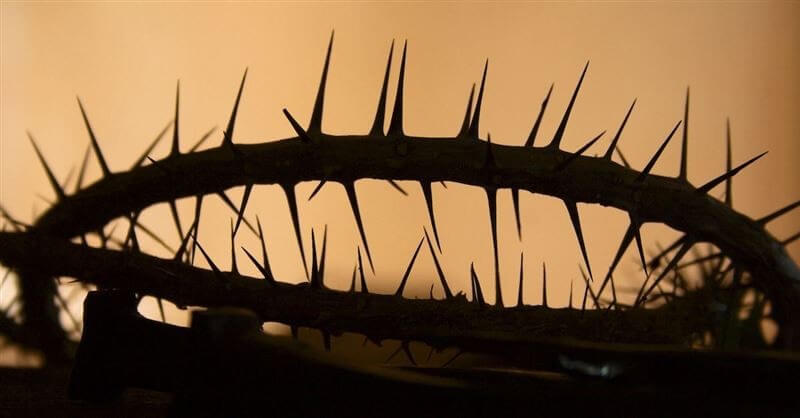
Lord Alton of Liverpool is a Crossbench Peer.
Without the certainties of Easter there would be little cause to describe this day, this Friday, as “Good.” The origins and etymology of the word have been lost in the mists of time, but scholars suggest that its meaning is rooted in the use of good as a representation of holy or pious. In old English it was called “Long Friday” and in the East it is sometimes known more graphically as Black Friday.
Whether you believe, or not, the story of this Friday was the story of a bad day for justice: an unjust trial, the violent use of torture, the degrading of human dignity, judicial murder. Mel Gibson left no doubt about the full horror and gruesome nature of Crucifixion in “The Passion of the Christ”. The harrowing detail is disturbing but undoubtedly accurate. The Romans perfected the art of the slow death and inflicted excruciating pain – intensified by scourging designed to lacerate and expose a man’s wounds.
The Crucifixion of an innocent man is an old story, yes, but one that still stirs vast numbers of people. It’s a story with contemporary resonance.
More than two billion people world-wide today identify as Christian and, even in the UK, almost two thirds of the country (33.2 million people) describe themselves as Christian. With 84% of the global population identifying with a religious group – and as the demographics of belief are weighted in favour of the young – the world has been getting more religious, not less.
For the non-believer, the religious beliefs of their acquaintances can seem incomprehensible and threatening. But it cuts both ways.
How we accommodate one another, how we negotiate each other’s beliefs – or lack of them – and how we learn to live alongside each other, with genuine respect for difference, is a defining question for our times. Its also one our forebears had to address..
In 1948, in the aftermath of the Holocaust, and the abject failure to counter a murderous ideology rooted in the hatred of difference, world leaders promulgated the Universal Declaration of Human Rights (UDHR) and the Convention on the Crime of Genocide. As international institutions have fallen into disrepair (or have been subverted by authoritarian regimes) the Declarations and Treaties – and the duties and obligations which flow from them – need urgent renewal and recalibration.
The UDHR was the civilised world’s response to the infamies of the 20th century—from the Armenian genocide to the depredations of Stalin’s gulags and Hitler’s concentration camps; from the pestilential nature of persecution, demonisation, scapegoating and hateful prejudice; it emerged from warped ideologies that elevated nation and race. The Declaration’s stated objective was to realise, “a common standard of achievement for all peoples and all nations”.
The four great murderers of the 20th century—Mao, Stalin, Hitler, and Pol Pot—were united by their hatred of religious faith. It was the bloodiest century in human history with the loss of 100 million lives. And now, in the twenty-first century, often in the name of a religion, millions more have died or been forced to flee their homelands.
Article 18 of the UDHR asserts the right to believe, not to believe, or to change your belief. It’s a good place to start on a day like this.
A defence of Article 18 ought to unite believers and non-believers alike – and might provide a common platform from which to call out those who violate so many of the other 30 Articles in the UDHR.
Article 18 is always a canary in the mine. Ignore it and, as sure as night follows day, discrimination will morph into persecution, crimes against humanity and, in the worst cases, lead to outright genocide.
In 2019, having read The Times leader writer’s description of our muted response to such anti-Christian persecution as the actions of “spectators at the carnage” Jeremy Hunt took the brave and well-judged step of commissioning an independent review of the evidence.
The Truro Report concluded that “the level and the nature” of the persecution of hundreds of millions of Christians was in some regions “arguably coming close to meeting the international definition of genocide.”
In saying that we had “fallen asleep on our watch” , failing to recognise or respond to the scale and nature of this persecution, Mr. Hunt might have had in mind the words of the Conservative abolitionist MP, William Wilberforce, who, in 1791, told the House of Commons: ‘You may choose to look the other way, but you can never again say you did not know.’
Turn a blind eye, pretend you didn’t know, and the persecution leads to atrocity crimes; turn a blind eye, and it becomes open season on believers of all faiths; turn a blind eye and every one of the other 30 Articles in the UDHR will be breached too.
That we still avert our gaze and have much more to do can be seen in these snapshots from the past few days.
Last weekend, on Palm Sunday, radicals acting, not for the first time, in the name of religion, laid bombs in a church – this time in Makassar in eastern Indonesia, injuring twenty people.
This week, the most important in the Christian calendar, is a favourite target of Jihadists. Recall the Easter Day bombings in Sri Lanka in 2019, and the Easter murders of church goers in Lahore’s Gulsha-i-Iqbal Park, picnicking after their Service.
But for many the agonies of Good Friday are a daily occurrence.
Think of Northern Nigeria where Leah Sharibu, a young schoolgirl, remains in the hands of Boko Haram, having been abducted, raped, forcibly converted, and married. Since the beginning of 2021, about 1,000 students have been kidnapped, including more than 300 schoolgirls seized in Zamfara last month. Since last Easter, more than 3,000 Christians have been killed in Nigeria – a country which last year received an average of £800,000 in UK aid every single day.
In Pakistan, another Commonwealth country, Maria Shahbaz is just one of around 1,000 Christian and Hindu girls, aged between 12 and 25, who are abducted annually – with impunity. Maria’s family have had to go into hiding trapped in lives of fear. Ten years ago, Shahbaz Bhatti, the Christian Minister for Minorities, was assassinated. No one has been brought to justice. During the same period Pakistan has been in receipt of £3 billion of UK aid – little of which reaches beleaguered minorities.
In Burma, the illegal military junta is stoking the fires of religious nationalism, targeting ethno-religious minorities such as Christian Kachin and Karen and Muslim Rohingyas. The appointment of my friend, Dr Sasa, an ethnic Chin, and a Christian, as the international envoy of Burma’s elected Parliamentarians, as well as Mahn Wing Khaing Than, an ethnic Karen Christian as their vice-president, is symbolically significant.
Dr Sasa, who has now been charged by the regime with high treason, but has managed to escape the country, is strongly advocating for a new political future inclusive of recognising equal rights for people of all religions and ethnicities, including Rohingyas.
Think, too, of the personal Calvaries of China’s religious minorities: the genocide against Uyghur Muslims; the incarceration of Christians in Hong Kong, who have been in the vanguard of defending Hong Kong’s freedoms; Tibet’s suffering Buddhists; murdered Falun Gong practitioners ; bulldozed churches and arrested pastors – like Pastor Wang Yi of Early Rain Church, now serving nine years in prison. Or, Zhang Zhan, a 37-year-old Christian woman, a citizen journalist and lawyer, who went to Wuhan to establish the truth about Covid. Having been tortured, Zhang’s Golgotha is a Chinese prison where she is serving a four-year prison sentence.
In neighbouring North Korea, another atheistic regime has created what a UN report describes as “a State without parallel” . A North Korean escapee from one of the concentration camps was a witness at a hearing I chaired in Westminster. She told us “They tortured the Christians the most”.
These stories can be replicated in many other jurisdictions, from Sudan to Iran, Eritrea to Iraq – where Genocide was the fate of Christians, Yazidis and other minorities.
The man who coined the word “genocide” was the Jewish Polish lawyer, Raphael Lemkin, and his work led to the Genocide Convention. He argued that “international co-operation” was needed, “to liberate mankind from such an odious scourge”.
As a Treaty signatory we are committed to prevent, protect, and punish. But as Parliament has made clear in recent weeks these promises have been honoured mainly in their breach. William Hague was right to say there is a significant “gap between the commitments States have made and the reality of their actions.”
Both the Genocide Convention and Article 18 of the UDHR are secular documents. They could still offer the best hope to the religious and non religious alike. Along with better focused and prioritised practical help, through UK aid programmes, we really could turn the tables.
On a day when we remember an unjust trial, the violent use of torture, the degrading of human dignity, and judicial murder, we might ask whether we march to such a very different tune, too often acquiescing in the shedding of innocent blood?
Good Friday was a bad day for humanity – but even the most monstrous crimes don’t have to be the final word. Beyond the Cross is an empty tomb, giving reassurance, meaning and perspective to our seemingly endless ability to inflict wounds and suffering on one another.
King’s College Choir – Jesus Christ is risen today – YouTube


